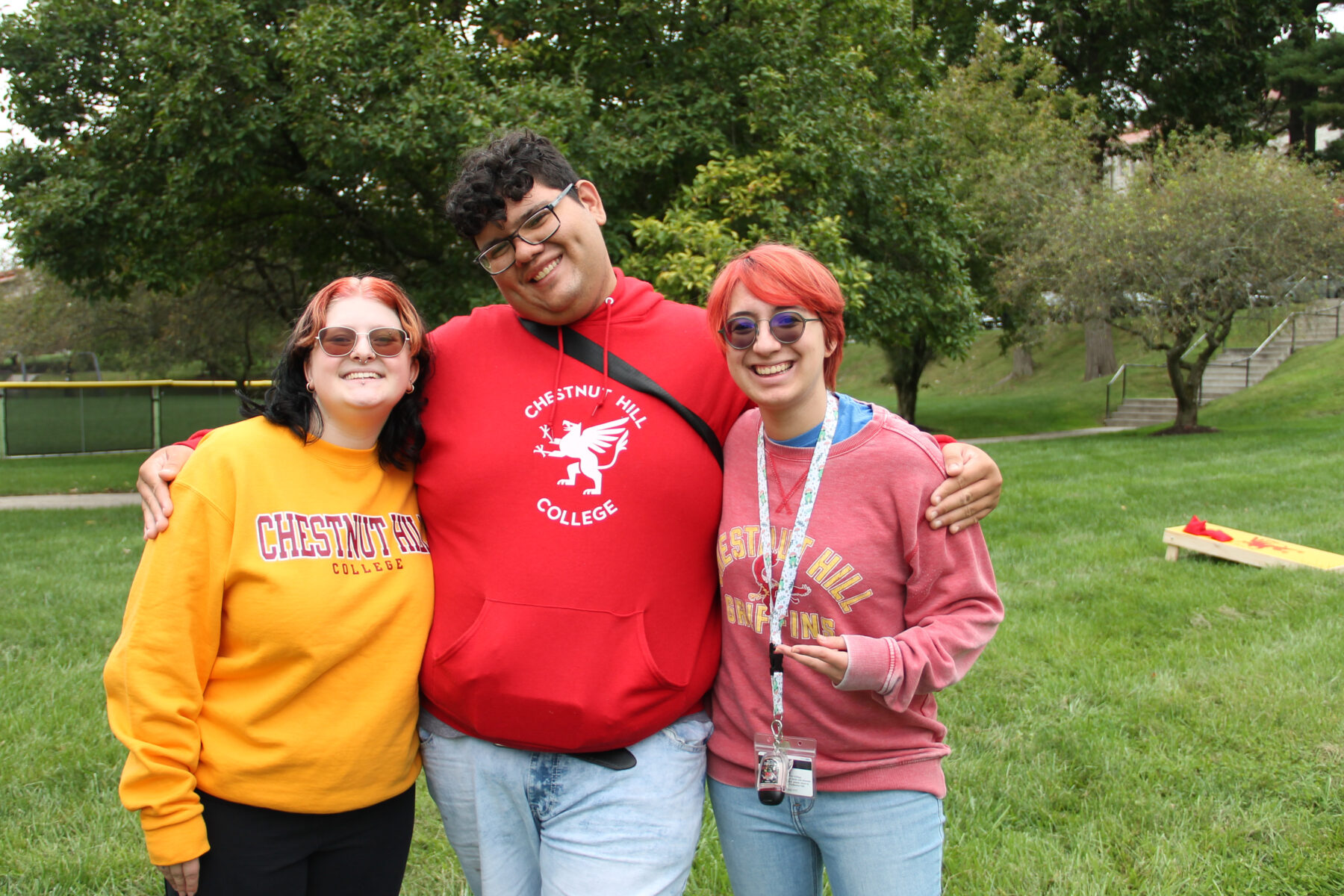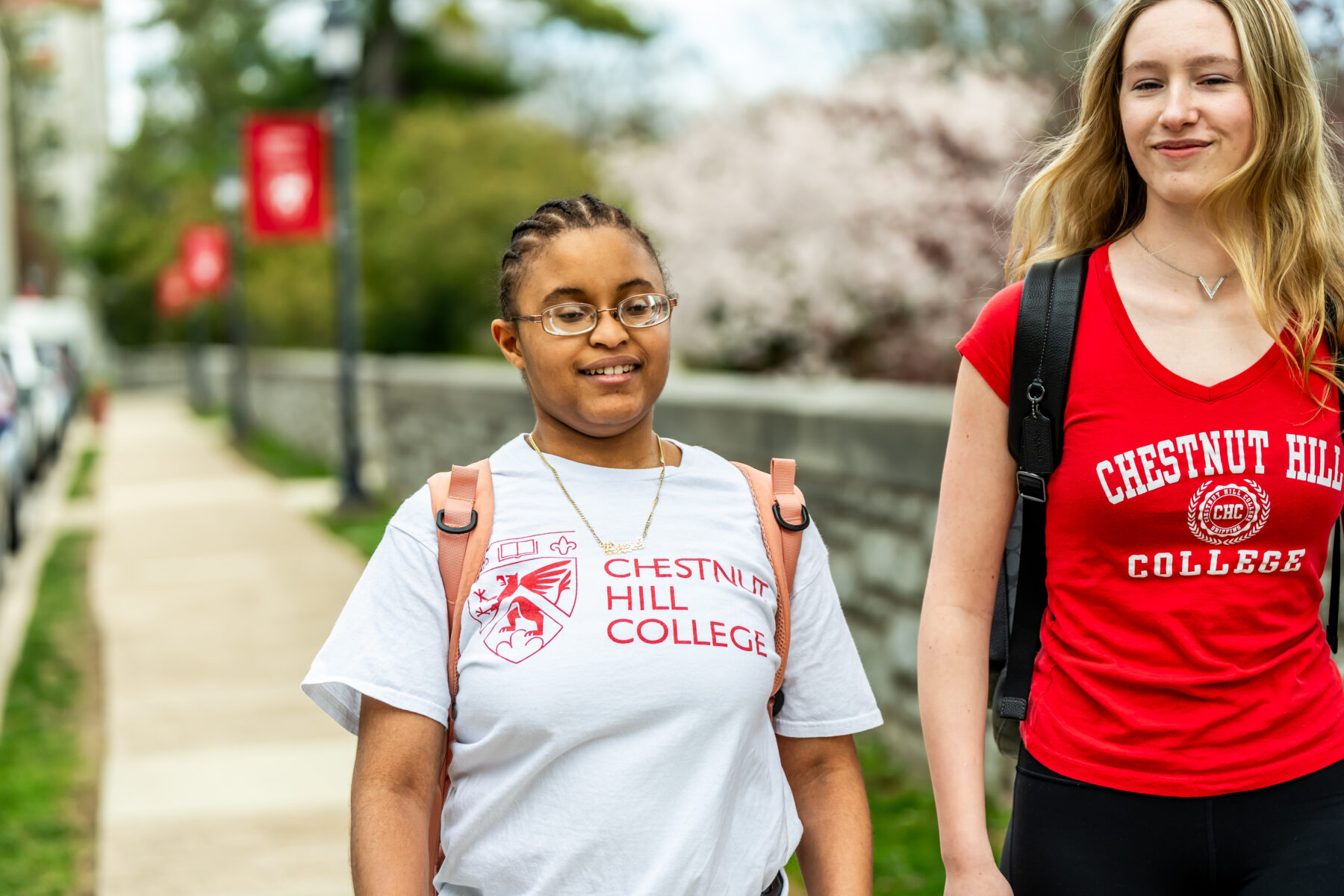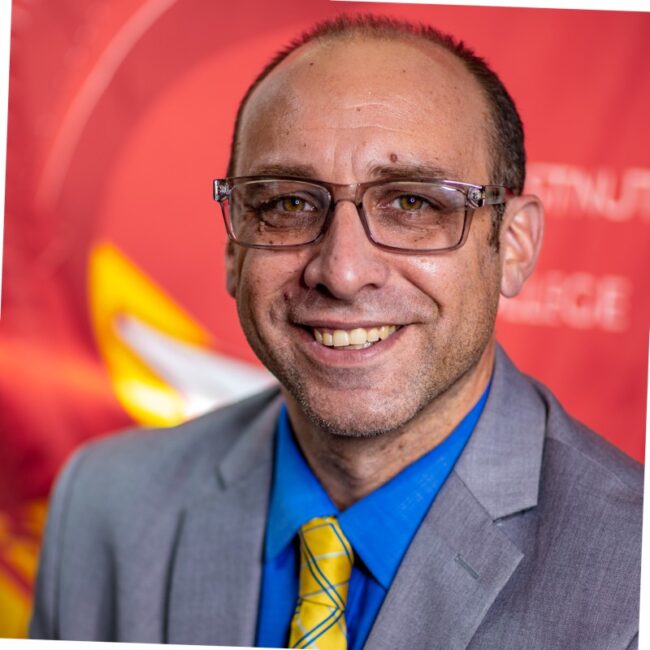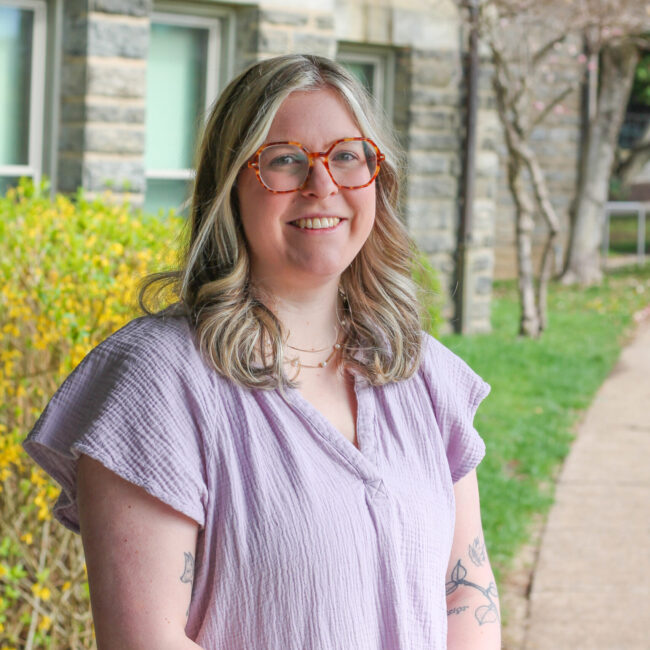
Neurodiversity Initiative

Chestnut Hill College recognizes that the transition to college is a time of significant change for many young adults. For neurodivergent individuals diagnosed with Autism, ADHD, and other learning differences, excitement and anticipation of college is frequently coupled with a sense of nervousness about these important next steps.
To set the stage for individual success, it is important to identify a college that offers support specific to the needs of the neurodivergent community—one with an inclusive environment that focuses on developing individuals and their relationships with others. Through its mission, inclusive campus, ideal faculty-to-student ratio, and student-centered model of teaching, Chestnut Hill College fosters such an environment and has developed programming specifically designed for neurodivergent individuals.
Chestnut Hill College offers an inclusive environment where neurodiversity is celebrated! Our program focuses on the following:
- Values of diversity, equity, and inclusion including recognition of the value in brain differences to empower student advocacy-authenticity
- Collaborative support model that is student-centered, promoting an authentic college experience
- Extensive faculty expertise and staff training on neurodiversity
- Innovative strengths-based approach to supporting student transition and engagement while focusing on individual growth and success
- Campus-wide activities that are neurodiversity affirming including faculty and staff workshops to reframe thinking on neurodiversity
- Importance of self-determination for all students to lead to empowerment
Life Skills through Career Program – Coming Soon!
Chestnut Hill College is excited to announce the inception of the Life Skills through Career Program, as of July 1, 2024. This program will serve adults with developmental disabilities and Autism Spectrum Disorder over the age of 21, and look to launch in 2026. This underserved population will come to Chestnut Hill for a 2-year program centering on independent living, vocational training, life skills, family systems supports, and a career of their choice.
As members of the Chestnut Hill College community, these individuals will be provided mission based services in a unique blend of human service ideals on a college campus. This program will build on the current services provided by Chestnut Hill College through the traditional Undergraduate Neurodiversity Program.
Neurodiversity College Program (Degree Program) – Available Now
As a part of CHC’s Neurodiversity College Program, degree-seeking students are provided an affirming and collaborative experience that is individualized to address their needs and interests. The program goal is to support a student’s journey to reach the pinnacle of their college experience, emerging prepared to be an independent, innovative thinker, contributing to and engaging with a global society using their unique skills.
College Program
Students begin the regular college school year in the fall, either as a resident or a commuter, participating in campus life and the Neurodiversity Program for all four years of their undergraduate experience.
As part of the College Program, students will work closely with Chestnut Hill College’s Office of Career Development. This starts with a four-year targeted plan to build a career map, which is conducted in the student’s first year. From there, students will benefit from continued mentorship as well as community and employment connection opportunities affiliated with organizations such as:
- Top College Consultants
- Praud
- Integrate for Good
- Specialisterne
- Neurodiversity in the Workplace
- Integrate Autism Employment Advisors
- DisabilityIN – Next Gen Employment Planning
- Workforce Recruitment Program (WRP) with the federal government
Following their College Program experience, neurodivergent students will have achieved success and built a toolbox of strategies across the AISE (Academic, Independent, Social, and Emotional) domains. We can expect College Program graduates to:
- Achieve a degree and remain in good academic standing for the duration of their stay at CHC
- Achieve placement in a career of the student’s choice based on their strengths within 6-12 months of graduation (this includes employment as well as further educational opportunities)
- Be prepared to live independently within the community
- Establish effective relationships with community members
- Utilize self-regulation and self-advocacy skills
- Engage and participate within the community with autonomy
AISE Model
Academics – Through the Academics model, students in the Neurodiversity Initiative will experience:
- Individualized course planning
- Regular meetings with an advisor
- Access to peer tutoring
- Academic skills development and academic coaching
- Testing accommodations
- Working with faculty members on classroom needs
- Priority scheduling
Independent Living – Through the Independent Living model, students in the Neurodiversity Initiative will experience:
- Self-Advocacy
- Self-Awareness
- Executive Function
- Goal Setting
- Daily Living Skills
- Employment / Internship Advising
- Experiential Learning Coaching
Social Support – Through the Social Support model, students in the Neurodiversity Initiative will experience:
- Peer mentors
- Social opportunities on and off campus
- Group gatherings with peers
- Social context check ins with staff
- Supported participation in extracurricular activities
Emotional Support- Through the Emotional Support model, students in the Neurodiversity Initiative will experience:
- Access to Counseling Center
- Peer guidance groups with peer mentors
- Access to individuals on campus who are trained in neurodivergent needs
- Family systems support for students and their families
- Support for Self-Regulation Practices
Meet the Team

Stephen Stunder, Ed.D.
Executive Director, Life Skills through Career Program
Director of Neurodiversity Initiatives

